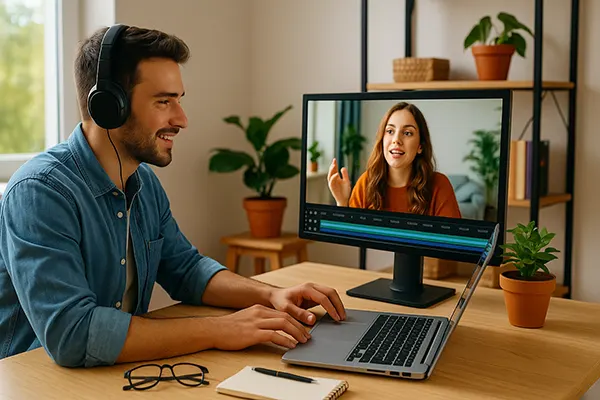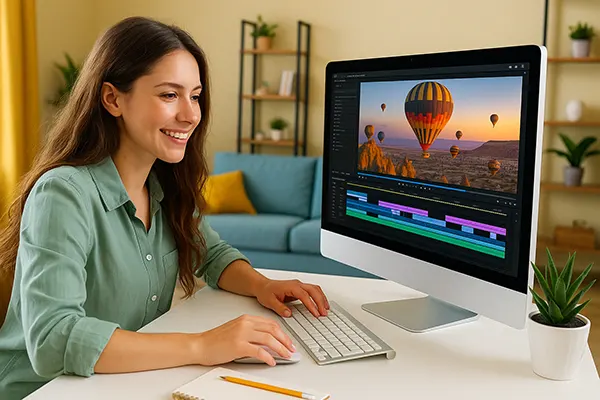
How to Make Money by Creating Subtitles and Translations for YouTube and TikTok
The demand for video content has exploded in recent years, with platforms like YouTube and TikTok dominating the digital landscape. As creators aim to reach wider audiences, the need for accurate subtitles and translations has become more important than ever. This opens up a genuine income opportunity for freelancers who are skilled in languages, transcription, or captioning.
Understanding the Market for Subtitling and Translation
YouTube and TikTok cater to global audiences, and many creators seek to localise their content to increase engagement and discoverability. Subtitles not only help with accessibility but also improve SEO by making content searchable. In 2025, many creators are investing in multilingual subtitles to expand their reach, especially in non-English-speaking markets like Spain, Brazil, and India.
According to recent data, over 60% of YouTube views now come from non-English speakers, and TikTok follows a similar trend. This means creators need translations not just in major languages like Spanish or French but also in regional languages like Tamil or Polish. This niche continues to grow as content becomes more global.
Freelancers can earn income by offering services that help bridge this language gap. These services include transcription, translation, and time-coded subtitling. Many platforms support this kind of freelance work, making it accessible even to beginners who are fluent in two or more languages.
Who Needs These Services and Why
Content creators, agencies, and even educational channels are constantly on the lookout for reliable subtitlers and translators. Brands are also investing in multilingual campaigns to connect with audiences across different regions. TikTok, in particular, is seeing a rise in short educational videos that benefit from localisation.
Subtitles enhance engagement by keeping viewers focused, especially on platforms where users often watch without sound. In addition, translated subtitles help creators comply with accessibility standards in various regions, boosting their visibility and brand reputation.
Businesses see value in translated content not just for reach, but for monetisation. Subtitled videos are more likely to get shared, recommended by algorithms, and appreciated by international audiences, resulting in greater ad revenue and conversions.
How to Get Started with Subtitle and Translation Work
To begin earning through subtitle creation, you’ll need basic tools: a reliable internet connection, a laptop, and transcription or subtitling software such as Subtitle Edit or Amara. Knowledge of time-coding and formatting standards (like SRT files) is essential to meet client expectations.
Platforms like Upwork, Fiverr, Freelancer, and specialised sites like Rev and GoTranscript offer entry points for subtitling jobs. These platforms allow you to create a profile, set your rates, and apply for gigs that match your skills and languages. Experience in video editing is an added advantage but not mandatory for most jobs.
If you’re bilingual, you can provide translation services alongside subtitles, doubling your value to clients. Fluency and cultural understanding are crucial, as literal translations may not always convey the intended meaning. Always aim for context-appropriate and viewer-friendly translations.
Tips to Maximise Your Earnings
Start with basic tasks and gradually build a portfolio by collecting client reviews. Quality and punctuality are highly valued, so delivering clean, error-free subtitles will lead to repeat business and better rates. You can charge per minute of video or per word of translation depending on the project type.
Specialise in niches such as gaming, tech, beauty, or education—these categories have consistent content flow and well-paying clients. Familiarity with industry terminology will set you apart from general translators. Joining subtitling communities and taking short online courses can boost your skills and visibility.
Consider offering bundled services such as “subtitles + translation + upload-ready formatting” to increase your average order value. Automating parts of your workflow (e.g., initial transcriptions via AI) while focusing on human editing ensures quality and efficiency.

Legal and Ethical Considerations
Before working with content, ensure that the client owns the rights to the material or has permission to use it. This is particularly relevant for YouTube and TikTok, where copyright strikes can lead to account penalties. Ethical work means respecting ownership and confidentiality of content.
It’s also important to comply with platform guidelines. For example, YouTube has clear rules on captioning, especially regarding hate speech or misinformation. Failing to follow these standards can lead to flagged videos or bans, which ultimately affect your reputation as a freelancer.
Moreover, if you’re working with sensitive or confidential content, always sign an NDA (non-disclosure agreement). It builds trust and protects both you and the client. Ethical freelancers maintain transparency about their process, turnaround time, and pricing to foster long-term working relationships.
How to Stay Relevant and Competitive
Keep your language skills sharp by consuming content in both your source and target languages. Stay updated with changes in subtitling tools and platform policies. For instance, TikTok’s auto-caption feature has improved, but still requires human refinement for accuracy.
Build a personal website or professional social media profile where you showcase your previous projects. A strong digital presence helps attract direct clients who are often willing to pay more than marketplace rates. Regularly updating your portfolio and obtaining certifications can improve your credibility.
Lastly, network with video editors, content marketers, and localisation managers. Many projects are awarded via referrals, especially in tight-knit creative communities. Attending webinars or contributing to online forums enhances your chances of being discovered for larger, long-term collaborations.
